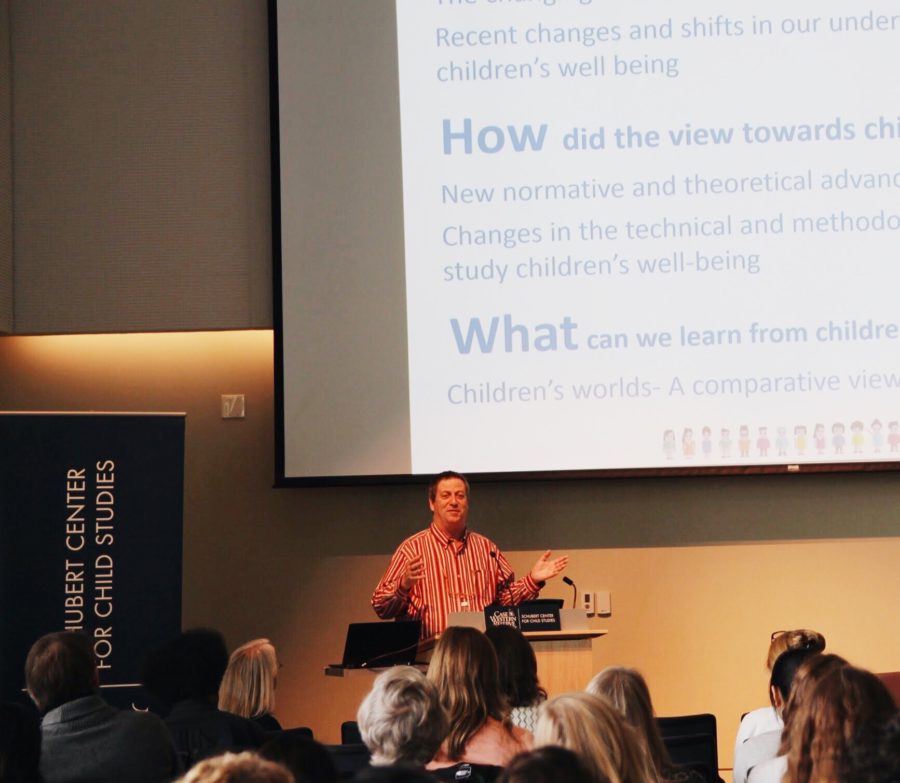How do children view their worlds?
Scholars on childhood research
Specializing on childhood and family research, Sabine Andresen and Asher Ben-Arieh are concerned with children’s relation to adults and the adult oriented world.
October 14, 2016
Do children have their own thoughts? Do children have the ability to evaluate the outside world? On Oct. 11, students and faculty gathered at Tinkham Veale University Center to explore children’s perception of the world with German Professor Sabine Andresen and Israeli Professor Asher Ben-Arieh. The talk, “How Children View Their World: Children’s Subjective Well-Being in the 19th Centuries,” introduced its audience to the work of these two researchers and their opinions on children’s life.
Andresen, a professor from Goethe University Frankfurt, Germany, specializes in childhood and family research. The study she presented in the talk is based on empirical findings in a survey she conducted from 2013 to 2014 on children’s subjective well-being and daily activities. 54,051 children involved in mainstream schools in 14 countries were asked to complete questionnaires about their satisfaction towards their daily lives. The measurements in the questionnaire ranged from life satisfaction and feeling of security to how much children feel safe at home. Through this survey, Andresen aimed to find out children’s relationships within their families and how children were influenced by these relationships. The results show that the most important factor that contributes to children’s happiness is the freedom to choose and family income is the least influential.
Ben-Arieh works for the Paul Baerwald School of Social Work and Social Welfare at the Hebrew University of Jerusalem, Israel. His research examines the relation between family well-being and children’s well-being. Children living with both parents are generally happier with family relationships and family life, according to a research with 21,210 children in 10 countries. The research also shows that there are not many differences between children living in single families and separated families. However children from separated families tend to feel less safe at home and agree least that their parents treat them fairly.
“Children do know what they need and they know how to express it,” said Ben-Arieh. “What we should do is that we need listen to them and then offer better services to children.” Furthermore, Andresen added that children can also give us important information about how they measure their life, how they experience their family, their school and so on.
The reason why Andresen and Ben-Arieh are interested in childhood and family research is that they are both curious about children’s lives. They wonder what their experiences are like with adults in an adult-centered world. Andresen and Ben-Arieh showed the audience that children do have their own perspectives and attention should be paid in order to provide children with better services.


